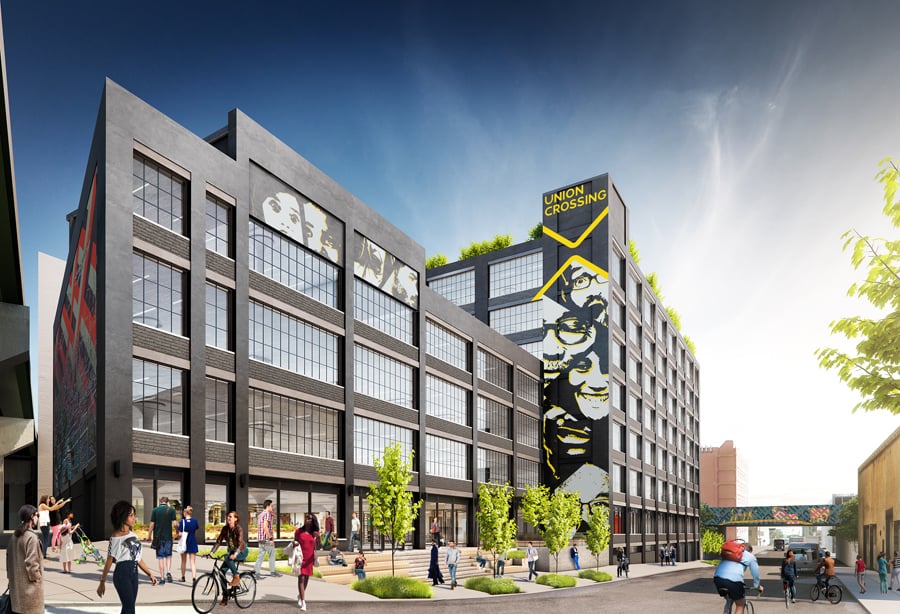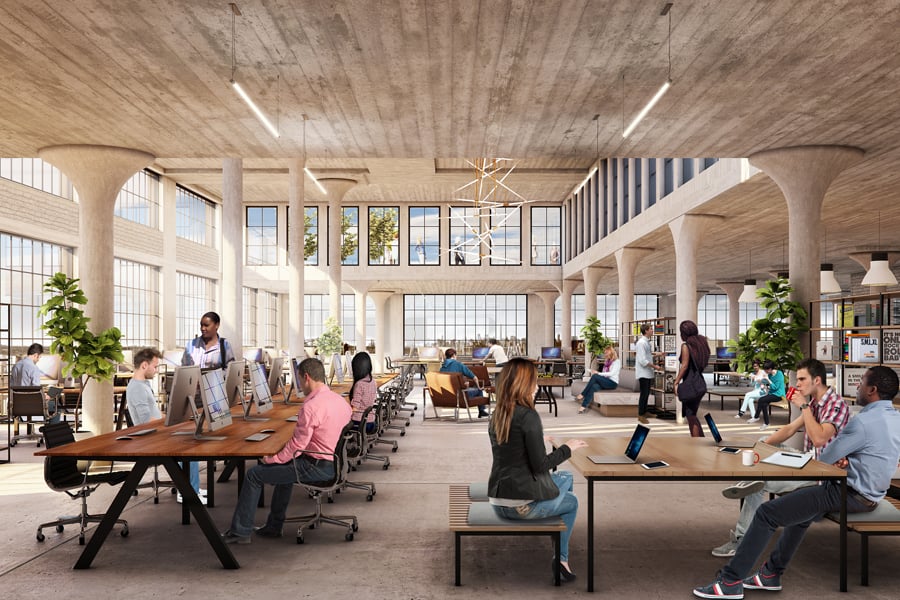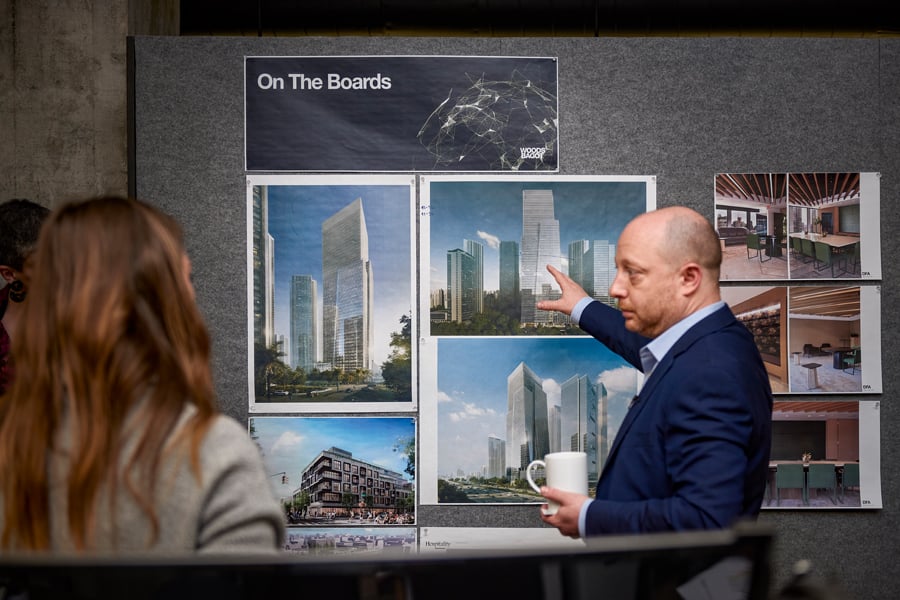
April 22, 2020
Are Amenities the Key to Work-Life Balance?
At a Think Tank event earlier this year, workplace experts discussed the changing face of amenities and whether people’s work experience has improved.

of workplace experience, Convene; Erik Horvat, managing director, head of real estate, Americas, The Olayan Group; and Bruce E. Phillips, senior managing director, Tishman Speyer. Courtesy Jessica Tang
Achieving the optimum proportions of time and effort dedicated to professional productivity and life outside it is a challenge even for the best-organized workers and their employers, because balance means different things to different people. For some, it’s eating breakfast at the office, while others want a private space away from the desk. The question is, How can a work environment help people achieve the balance they need? At a recent Metropolis Think Tank event in New York, hosted by Woods Bagot, workplace experts explored how employees’ relationships with their office amenities have changed over the years and how designers and clients can strategically deploy features to improve workers’ experiences.
Jeremy Singer, principal at Woods Bagot, introduced the discussion as a conversation about “work and place,” meaning placemaking beyond traditional work or hospitality models. According to the panelists, that involves assembling mutually beneficial networks throughout the building and beyond.
Lifestyle and hospitality trends now show up frequently in offices, making the workplace more comfortable and welcoming than ever before. Erik Horvat, managing director and head of real estate, Americas, at The Olayan Group, spoke to the value of a hospitality-centered approach. “We started looking at amenities as a function of services we could provide—not giveaways, but things that truly added value to those tenants,” he said. Most important, that means understanding the necessities of those who interact with the building. Some of the panelists presented ways that their building amenities addressed unspoken needs.

Jackie Manzer, director of workplace experience for Convene, made the point that valuable amenities save workers time and headaches. “In L.A., if everybody’s rushing out the door at 3 p.m., go talk to the guy who’s running the garage across the street and see if you can negotiate parking spots that are closer to the exit so that your people can get out faster,” she said, explaining how she finagled parking spaces and created a better commuting experience for her tenants.
At Tishman Speyer, which broke into the coworking market in 2018 with Studio and now operates 10 such spaces in the United States and Brazil, understands the value of amenities that go beyond operational advantages and offer delightful experiences. Senior managing director Bruce E. Philips spoke of the wide array of programming provided at Studio, including yoga classes and social events—all intended to help tenants feel like their workplace also offers opportunities to enhance their lives.
However, it’s important to recognize that hospitable design or policy features can play a key role in improving work-life balance, but they are always an “overlay” on top of the fundamentals of a building (clean bathrooms, working elevators, etc.). That’s why, according to Manzer, clients need to understand their specific goals for amenities. At Convene, she said, “every office space has a workplace experience manager who reports up through my function, and I task them with figuring out what their population is doing on their own.” Amenity-building can then be proactive and tailored to each market—as it ideally should be.
The Think Tank discussions were held on February 26 and 27, 2020, in New York City. The conversations were presented in partnership with Arc-Com, DXV GROHE, KI, Kimball, and Versteel.
You may also enjoy “For a Successful Workplace, It’s All About the Neighborhood.”
Would you like to comment on this article? Send your thoughts to: [email protected]
Register here for Metropolis Forums Webinars
Connect with experts and design leaders on the most important conversations of the day.
Recent Viewpoints
Viewpoints
Navigating the Path to Net Zero







